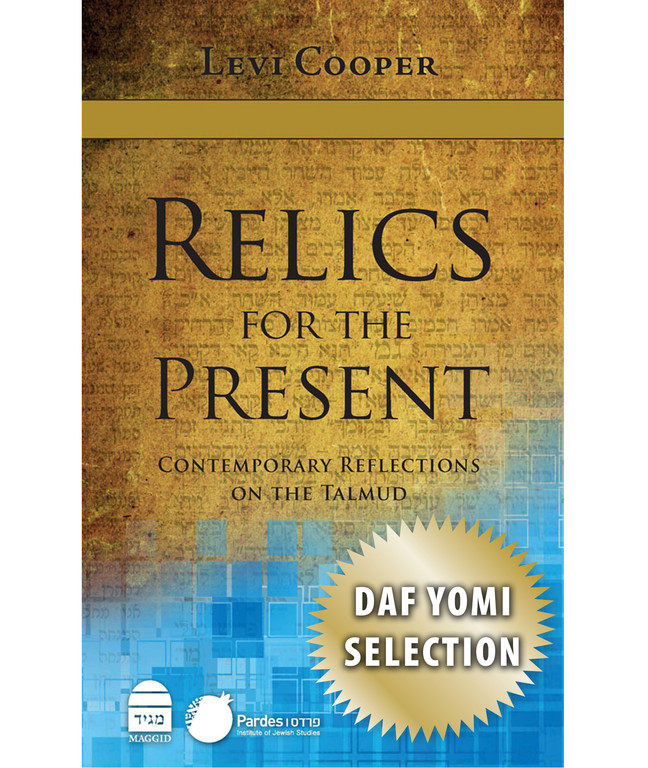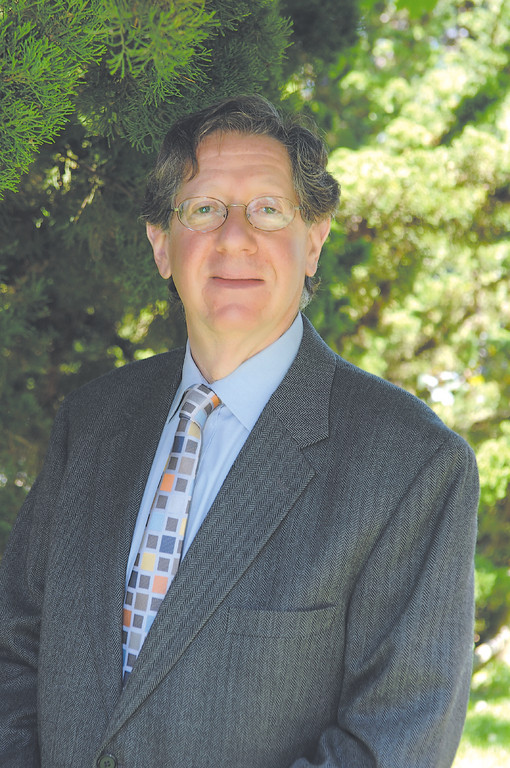The Kosher Bookworm:Contemporary reflections on Mesechet Berachot from Rabbi Levi Cooper
In a recent essay, scholar Dr. Israel Drazin made the following observation: “Many rabbis write books based on Torah verses, which they use as a backdrop for their ideas about contemporary society and the application of what they consider moral principles to various modern problems.”
In a recently published work on the first five chapters of Mesechet Berachot, Rabbi Dr. Levi Cooper of Zur Hadassa and famed Talmud columnist of The Jerusalem Post, authored such a book entitled, “Relics For The Present” [Maggid / Pardes 2012] wherein he applies Dr. Drazin’s observation to the deeper meaning of the Gemara’s text.
With Rosh Hashanah and Yom Kippur soon approaching, the citation of a few timely observations by Rabbi Cooper from this most elegant work would be most appropriate.
In an essay titled “Audible Prayer” based upon Berachot 15, Rabbi Cooper notes how the rabbis looked down upon the oral recitation of prayer in a loud and audible manner. However, he notes the following qualification:
“Praying aloud on the High Holy Days is also treated as a different category. Since there are some people who make extra effort to attend services on Rosh Hashanah and Yom Kippur, in consideration of them, we allow audible prayer in order to facilitate their participation. Also, prayers on these significant days are often of a different caliber, and audible praying may facilitate greater concentration and focus.”
Rabbi Cooper, citing the issue of the great significance of giving blessings as discussed in Berachot 7a, tells us the following story to highlight the importance of wishing one and all best wishes for the upcoming new year.
“This brings us to the story of a disciple who traveled to spend the holy day of Yom Kippur with the famed Hasidic master, Rabbi Yaakov Yitzchak Horowitz [1734-1815], better known as the Choseh of Lublin. The Choseh was renowned for being able to look at a person’s face and see deep into his or her heart.
“When the disciple reached the city of his master, he went straight to the Choseh’s beit midrash. The Choseh took one look at him and ordered him to return to his family. Confused and crestfallen, the disciple turned around and began the journey home.”
“That night he lodged at a small inn. While he sat in a corner drowning his sorrows in a glass of tea, the door swung open and in trooped a group of his friends making their way to Lublin for Yom Kippur. When they spied their friend sitting gloomily in a corner, they excitedly called him over and exclaimed: ‘So you too are going to Lublin!’
“With a long face, the unhappy disciple replied: ‘No, I will not be joining you. The Choseh instructed me to return home.’
“Trying to cheer him up, they replied: ‘No need to be sad. Let’s drink lechayim, to life!’
“They filled their glasses and blessed their downcast friend: ’May you merit to live a long life! Lechayim! ’”
“Glasses were quickly refilled. ‘May you have much joy from your children! Lechayim! ’”
“Another round was called for. ‘May you merit to spend other festivals in the presence of our master! Lechayim! ’”
“One by one, they drank lechayim, and each friend blessed the dejected disciple.”
Rabbi Cooper details how the disciple erroneously found his way back to Lublin for Yom Kippur where, during the long services, he covered himself in a talis so as to hide from the sight of the Choseh in the back of the shul.
Rabbi Cooper continues this story to its now inevitable conclusion:
“That evening, the Choseh entered the packed beit midrash. Instead of making his way to his usual seat, the master made a bee-line for the disciple tucked away in the corner and greeted him: ‘What a pleasure to have you with us for this holy day! May you be sealed in the Book of Life.’”
“As the service commenced, the disciple stood there bewildered. Following the service, the befuddled disciple approached the Choseh seeking an explanation. With a kind smile, the Choseh explained:
‘When you first arrived, I realized that you were destined not to live out the year. I, therefore, told you to return home so that you would spend your final days with your family. When your simple friends heaped earnest blessings on you, the heavenly decree was reversed. Naturally, I was overjoyed to see you.’”
A BLESSED LESSON TO BE LEARNED
At this time of year when we all greet each other with blessings and best wishes, we should ever be mindful of this saga, for as Rabbi Cooper teaches us from the following lesson:
“Blessings may come from unusual quarters. Regardless of the stature of the one offering the blessing, we should accept any blessing proffered with an open heart. For we cannot know which blessings will truly bring us good fortune.”
Hopefully, in the near future, volume two of this series will appear with more cherished “vortlachen,” short divrei Torah from Rabbi Cooper’s teachings based upon both the Torah and Talmud, as inspired by both and by the experiences of our people down through the ages.

 54.0°,
Mostly Cloudy
54.0°,
Mostly Cloudy 







